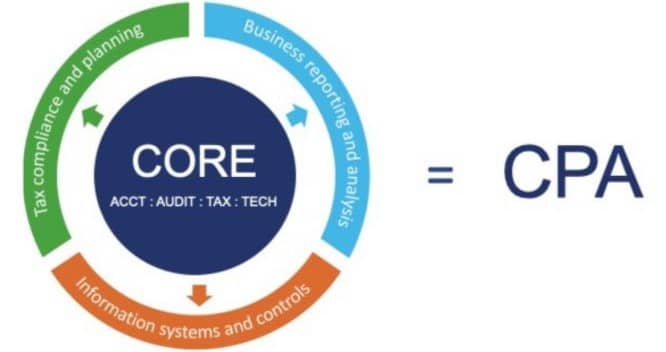New! Amazing Self-Paced Courses You Can Start Every Month!
In June 2021, it was announced that there will be a complete overhaul to the current Uniform CPA Exam system in the coming years. This is a process that was initiated in 2019. Starting with feedback from over 2,000 professional, students and corporations, as well as the joint efforts of their ‘CPA Evolution Model Curriculum Task Forces’ comprising of 40 volunteers from across the accountancy profession, NASBA and AICPA have developed a new curriculum and exam model to be implemented by January 2024. This is to accommodate students who have already begun their CPA process. It will still be comprised of four parts – three Core sections followed by a Discipline exam.
The move is part of NASBA’s ‘CPA Evolution’ Campaign that is a joint initiative between NASBA and AICPA. The purpose of this change is to bridge the gaps in the curriculum that fail to address certain technological advancements and their impact of the accounting industry.
Although the actual course content has yet to be announced while they smooth out the details, they have projected a release date of mid-2022. In the interim, they have adopted an interesting method of acquiring the curriculum material for the exams. Between August and October 2021, AICPA reached out for community involvement in this endeavor by announcing a competition with a $1,500 prize for the submission of original teaching resources for the new curriculum. AICPA felt that by incorporating independent outreach they could adapt the curriculum to reflect modern subject matter that is highly relevant to today’s accounting world. These subjects include Data Analytics, IT Audit, Cybersecurity, Predictive Analytics or System and Organization Controls (SOC).

Once completed, the candidate will then choose a Discipline exam. This entails specialized knowledge in one of these specific areas, namely:
According to Sue Coffey, CPA, CGMA, CEO of Public Accounting – American Institute of CPAs, the goal of this new model is to develop, ‘A skill set that includes a deep understanding of new and emerging technologies is essential for CPAs entering the profession. We heard from accounting faculty that they want insight into how to begin transitioning their programs to teach these skills and better prepare students for the coming Core + Disciplines CPA Exam structure. We’re excited to share the work of our Task Forces and help faculty prepare a strong pipeline of future CPAs who will continue to meet the changing needs of U.S. capital markets.’
As to whether these exams will follow the current CPA Exam structure, that has yet to be announced. However, what is known is that the passing of all three Core exams and any one of the Discipline exams will result in the same full CPA exam licensure. As such, they will still be able to practice in any area, regardless of which Discipline exam they chose.
AICPA and NASBA have not yet specified the requirements, but have suggested the following courses to prepare for the new CPA exam:
Additional information can be found on AICPA’s new CPA Evolution website and their current suggested curriculum pamphlet with each of the above courses broken down in detail can be found here.